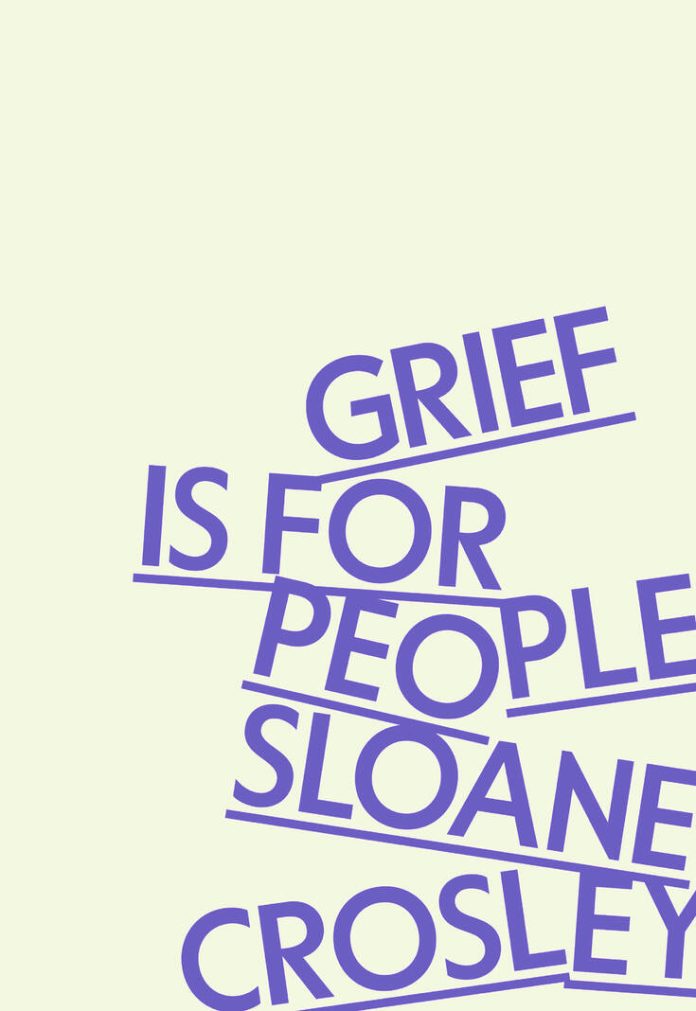“The miracle of life is not that we have it, it’s that most of us wake up every day and agree to fight for it, to care for it, to hold it in our arms even when it squirms.”
That’s the sentence from Sloane Crosley’s “Grief Is for People” that I suspect many reviews will quote. It doesn’t get at how witty the book is but it does highlight its central concern, which is how to grapple with the suicide of a friend, especially how to think about the everyday things you’d usually share with a person with whom you can no longer share anything.
Events of Crosley’s life neatly fall in line for this juxtaposition. One month before her friend and boss Russell Perreault died by suicide, someone busted into Crosley’s apartment, broke apart a cabinet she had purchased in the company of estate sale fiend Perreault and stole all the jewelry in it — some precious and some only of nonsentimental value (of one item given Crosley by her grandmother, Crosley’s mother says, “I might remind you that we didn’t like my mother.”)
Fans of Crosley’s tart essay collections, including “I Was Told There’d Be Cake,” will recognize her ironic humor and her instinct for the perfect detail — as in the description of her building superintendent’s reaction to the theft: “For months, every time he sees me, he will go over what we saw on the security footage like he’s Oliver Stone watching the Zapruder film.”
There’s a screwball quality to the jewelry theft, which finds Crosley unwisely making like Nancy Drew and pondering the wisdom of staking out a suspected burglar. The writer realizes how insignificant the loss of a few brooches is, particularly after Russell’s death, which is why the book is called “Grief Is for People” (not things). But both events happening around the same time help her understand how “unruly” grief is, how impossible it is to compare one person’s sorrow to another’s.
As she reckons with that, Crosley begins to see grief as an almost tangible thing that will always be with her, which is where her book may be most compelling for others who are grieving.
Written in the present tense, so everything feels like it’s coming at the author at once, “Grief” also shows Crosley drawing to a close a career as a book publicist (her assignments included picking up the pieces after the Star Tribune exposed pugnacious memoirist James Frey’s “A Million Little Pieces” as largely fictitious) and launching a career as a bestselling essayist.
Hers is not a self-help book, by any means, but Crosley’s three-steps-forward/two-steps-back journey to a kind of peace could be useful for others who, like her, feel broken and confused.
Where to find help
If you or someone you know is struggling with suicidal thoughts, call the 988 Suicide and Crisis Lifeline by dialing 988. You can also text HOME to 741741 to connect with a Crisis Text Line counselor.







